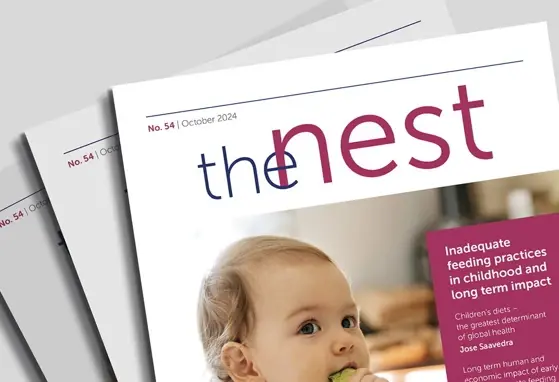The Nest

The Nest 55: Empowering Mothers: The Interplay of Nutrition, Microbiome, and Long‑Term Health
This August 2025 issue of The Nest—Empowering Mothers: The Interplay of Nutrition, Microbiome, and Long-Term Health—explores women’s health across preconception, pregnancy, and postpartum, emphasizing strategies to improve long-term outcomes. Professor Eline Van der Beek highlights how physiological changes increase nutritional needs during pregnancy and lactation, showing how timely micronutrient supplementation can help reduce adverse outcomes. Professor Francesco de Seta examines the estrogen–microbiome axis, revealing how shifts across reproductive phases influence metabolism, inflammation

The Nest 54: Inadequate feeding practices in childhood and long term impact
Adequate feeding practices are important to promoting healthy growth and development in infants and children, particularly during the complementary feeding period when their nutritional needs increase. A child's nutritional status has both short- and long-term impacts on health, and the timely introduction of a balanced, nutrient-dense, and age-appropriate diet is essential for preventing malnutrition.

The Nest 53: Learning to Eat
Infant feeding is a multifaceted process that extends beyond simply offering food. Complementary feeding is the process of giving foods that complement breastfeeding to be able to provide balanced, nutrient-dense options to be able to meet their high nutritional needs while preventing obesity. There are a lot to consider such as timing, perceptual complementary feeding, and the culture and family context. Typically, this begins at 4 to 6 months, when the baby exhibits signs of readiness. Age adapted foods, and encouraging the baby to try to feed themselves based on their oral motor skills